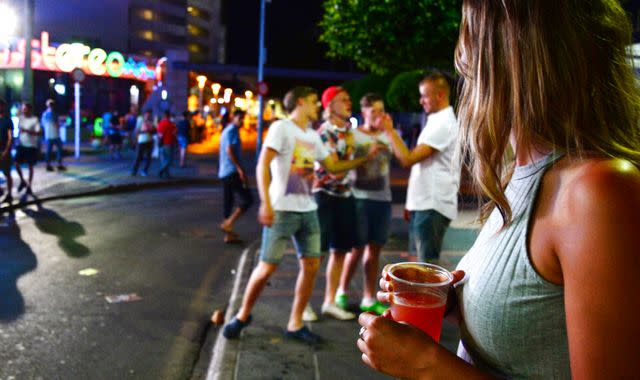Alcohol ban in Ibiza and Majorca - what tourists need to know as new rules come in

Tourists in parts of Majorca and Ibiza will face hefty fines for drinking alcohol on the streets as part of a crackdown in areas of "excessive tourism".
The government of Spain's Balearic Islands has toughened laws that were first introduced in 2020.
As well as banning drinking on public roads, the rules stop shops from selling alcohol late at night and put tighter controls on party boats.
Any tourists found breaking these rules could face a fine of up to €3,000.
Here is what you need to know to avoid a fine.
What areas are covered by the ban?
The rules apply in three resorts in Majorca - Llucmajor, Palma and Calvia (Magaluf) - as well as San Antonio in Ibiza.
The ban extends one nautical mile (1.85km) off the coast for all of these destinations, with party boats banned from getting any closer and forbidden from picking up or dropping off passengers in those areas.
The Palma mayor Jaime Martínez said one of his main objectives is to "correct uncivil attitudes".
Does an alcohol ban mean no booze at all?
No. Tourists will still be able to drink, but there are now stricter controls on where.
Crucially, you are not allowed to drink on the street.
The only exception to this is on the terraces of bars or restaurants or other legally authorised areas.
But wandering down the street with a half-finished pint or open bottle is a definite no-no.
Shops that sell alcohol must close between 9.30pm and 8am.
What are the penalties for tourists who break the rules?
People could be fined between €750 and €1,500 (£645 and £1,290) if their public drinking "disrupts coexistence, involves crowds or deteriorates the tranquillity of the environment".
If the offence is considered very serious, the fine could range from €1,500 to €3,000 (£1,290 to £2,580).
Local authorities will report the number of foreign tourists who have been sanctioned to the respective embassies.
How will the ban be enforced?
The government has committed up to €16m (£13.7m) to spend on enforcing the ban on public drinking.
There will be extra security and inspections as well as a focus on raising awareness of the rules among tourists in the hotspot areas.
Read more from Sky News:
Milan backs down on plans to ban late-night ice cream
Tyson Fury's dad headbutts member of opponent's entourage
When does the ban come into force - and for how long?
The ban came into force on 11 May 2024.
It will remain in place until 31 December 2027. After that, the government hopes the law will no longer be necessary.
How is this different to what was already in place?
The new decree strengthens laws that were introduced in 2020 banning happy hours, pub crawls and two-for-one drink offers.
Those rules prohibited the sale of alcohol in shops between 9.30pm and 8am and stopped party boats from advertising in designated areas.
The main change is that drinking on public roads is now banned.
It also extends how long the laws are in force; in 2020 the government said they would be in place for at least five years and that has now been extended to the end of 2027.


